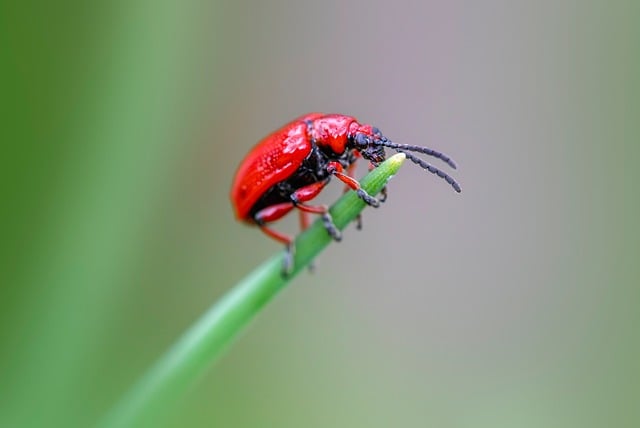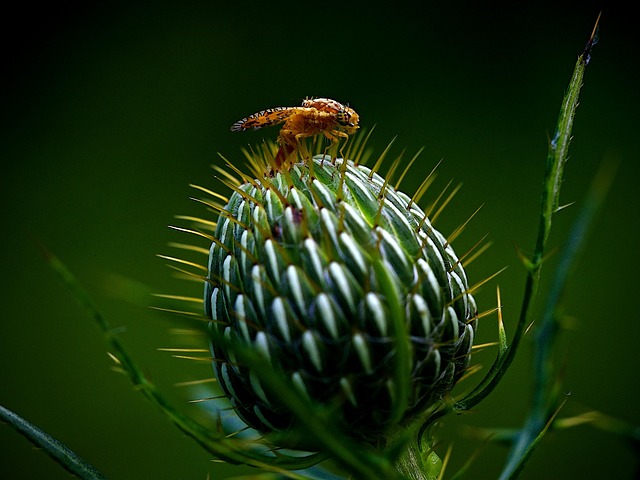In Sheridan, effective residential mosquito control is key to preventing the spread of West Nile Virus (WNV). By understanding raccoon behavior and eliminating attractants, homeowners can deter these wild animals from entering properties, reducing WNV risk. A multi-faceted approach involving breeding ground elimination, targeted insecticides, natural methods, community involvement, and comprehensive strategies like source reduction and integrated pest management (IPM) is vital for sustainable mosquito control. This holistic method not only reduces annoyance but also significantly minimizes health risks associated with WNV transmission in Sheridan.
In the quiet suburbs of Sheridan, maintaining a pest-free home is not just about comfort; it’s also about public health. With the rise of West Nile Virus transmission through mosquitoes, effective residential mosquito control becomes crucial. This article guides homeowners through comprehensive raccoon exclusion plans and sustainable pest control strategies. From understanding raccoon behavior to long-term environmental solutions, discover how to protect your family, pets, and community from these vectors of disease while ensuring a safe, healthy Sheridan.
- Understanding Raccoon Exclusion and West Nile Virus Prevention in Residential Areas
- Implementing Effective Pest Control Measures for Mosquitoes
- Long-term Strategies for Maintaining a Mosquito-Free Environment
Understanding Raccoon Exclusion and West Nile Virus Prevention in Residential Areas

Raccoon exclusion plays a vital role in residential areas, especially with regard to West Nile Virus (WNV) prevention. As these wild animals roam and set up residence in urban environments, they can become carriers of WNV, transmitting it through their bites or droppings. In Sheridan, where residential mosquito control is a priority, understanding raccoon behavior and implementing effective exclusion strategies is crucial.
Homeowners should be aware that raccoons are attracted to water sources, food waste, and places to nest. By eliminating these attractants and securing potential entry points into homes and attics, residents can deter raccoons from seeking shelter in their properties. This proactive approach not only protects against property damage but also mitigates the risk of WNV transmission, ensuring a safer environment for Sheridan’s folks.
Implementing Effective Pest Control Measures for Mosquitoes

In residential areas like Sheridan, effective pest control measures for mosquitoes are crucial to prevent the spread of diseases such as West Nile Virus. Implementing a comprehensive mosquito control strategy involves several key steps. Firstly, identifying breeding grounds is essential; mosquitos proliferate in stagnant water, so removing or treating these sources—like buckets, bird baths, and clogged gutters—is critical. Additionally, using insecticides targeted at adult mosquitoes can significantly reduce their population.
Beyond chemical treatments, adopting natural methods like installing bat houses (as bats are natural mosquito predators) and utilizing mosquito repellents can enhance overall control efforts. Community-wide participation is also vital; organizing neighborhood clean-up events to eliminate water-filled containers and promoting responsible land management practices contribute to a more sustainable mosquito control strategy in Sheridan.
Long-term Strategies for Maintaining a Mosquito-Free Environment

In the quest for a mosquito-free environment, especially in residential areas like Sheridan, long-term strategies are key to preventing not just an annoyance but also serious health risks such as the West Nile virus. Implementing effective Residential mosquito control goes beyond seasonal measures; it involves creating a comprehensive plan that disrupts the mosquito life cycle and discourages their presence. One of the primary approaches is source reduction, which entails eliminating standing water where mosquitoes breed. This includes regular cleaning of gutters, emptying containers that collect rainwater, and maintaining proper drainage systems to prevent stagnant water from attracting mosquitos.
Additionally, using a combination of biological, chemical, and physical controls can significantly enhance Residential mosquito control efforts. Biological methods involve introducing natural predators like fish into standing water bodies or applying bacteria and parasites that specifically target mosquito larvae. Chemical controls, when used responsibly, include targeting adult mosquitoes with safe, approved insecticides. Physical controls such as fine mesh screens on windows and doors, along with mosquito traps, further restrict mosquito entry into homes. By integrating these long-term strategies, Sheridan residents can effectively maintain a mosquito-free environment while also mitigating the risk of West Nile virus transmission.
In Sheridan, residential mosquito control is not just about eliminating pests; it’s about safeguarding communities from diseases like West Nile Virus. By combining short-term pest control measures with long-term exclusion strategies, residents can create a mosquito-free environment that promotes public health and enhances outdoor living. Implementing these comprehensive plans ensures a safer, healthier Sheridan for all.
